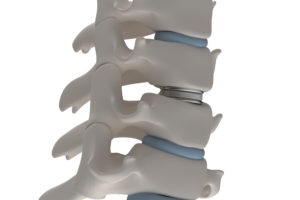RECOVERY
Patients are able to mobilise the same day as the surgery is performed, and usually stay in hospital for 1-2 days. It is common to have a sore throat and some mild discomfort with swallowing after the surgery. It is usual to feel some pain, especially at the incision site. This should decrease a little each day. You will be discharged with pain relief medications to manage this, and given a booklet outlining all postoperative instructions. Once at home you will receive a follow up phone call from the practice nurse. Postoperative appointments will be arranged for you at both the 2 and 6 week mark with the practice nurse and Dr Winder respectively.
Once home, frequent short walks are recommended. This will help in your recovery and also reduces the risk of blood clots forming in your legs. A gradual increase in physical activity is advised.
You must not lift anything heavier than 5kg for the first 6 weeks post-operatively and avoid twisting and bending movements. Avoid housework such as vacuuming, mowing and hanging washing on the line for the first 6 weeks postoperatively.
Ensure you maintain correct posture when working in front of a computer. You will need to take frequent breaks, assitting for prolonged periods will cause your neck to stiffen and your posture to deteriorate.
You may drive 2 weeks after surgery if you are comfortable to do so but avoid long distances.
Physiotherapy is recommended 2 to 3 weeks after your surgery. Gentle stretches and postural control exercises will help to strengthen your neck after surgery.
Keep your wound dry, you will be given extra waterproof dressings on discharge. You may shower as normal but if your dressing becomes waterlogged it should be changed. Dr Winder’s practice nurse will check your wound at your 2 week postoperative appointment.
Dr Winder will discuss resuming sports and other physical activity at your 6 week appointment
Please note that it is not uncommon to have localised neck pain for up to 4-6 weeks. This will generally resolve spontaneously and is due to the sensitivity of the cervical musculature.
Depending on the degree of nerve compression, it is also very common to have some degree of arm discomfort, as it will take time for the compressed nerve to recover. Please do not be alarmed if you have some intermittent arm pain, as this is a normal part of the healing process.It is usual to feel some pain after surgery, especially at the incision site.
RISKS AND COMPLICATIONS
The main risks foe ACDF surgery include:
- Damage to recurrent laryngeal nerve (0.025%), leading to a hoarse voice. If this occurs, it is almost always temporary.
- Vascular injury (very rare)
- Risk to spinal cord (estimated risk is 1/10,000)
- CSF leak (extremely rare)
- Nerve root damage (very rare)
- Oesophageal perforation/ tracheal perforation (very rare)
If you require surgery, Dr Winder will discuss all relevant risks during your consultation.
There are risks associated with any surgery, the most common being:
- Deep vein thrombosis (DVT)
- Urinary tract infection (UTI)
- Chest infection
- Pulmonary embolism (blood clot in lungs)
- Myocardial infarction (heart attack)
- Stroke
A full medical history including allergies, medical conditions and previous surgery is required before your surgery to help reduce the risk of complications occurring.


